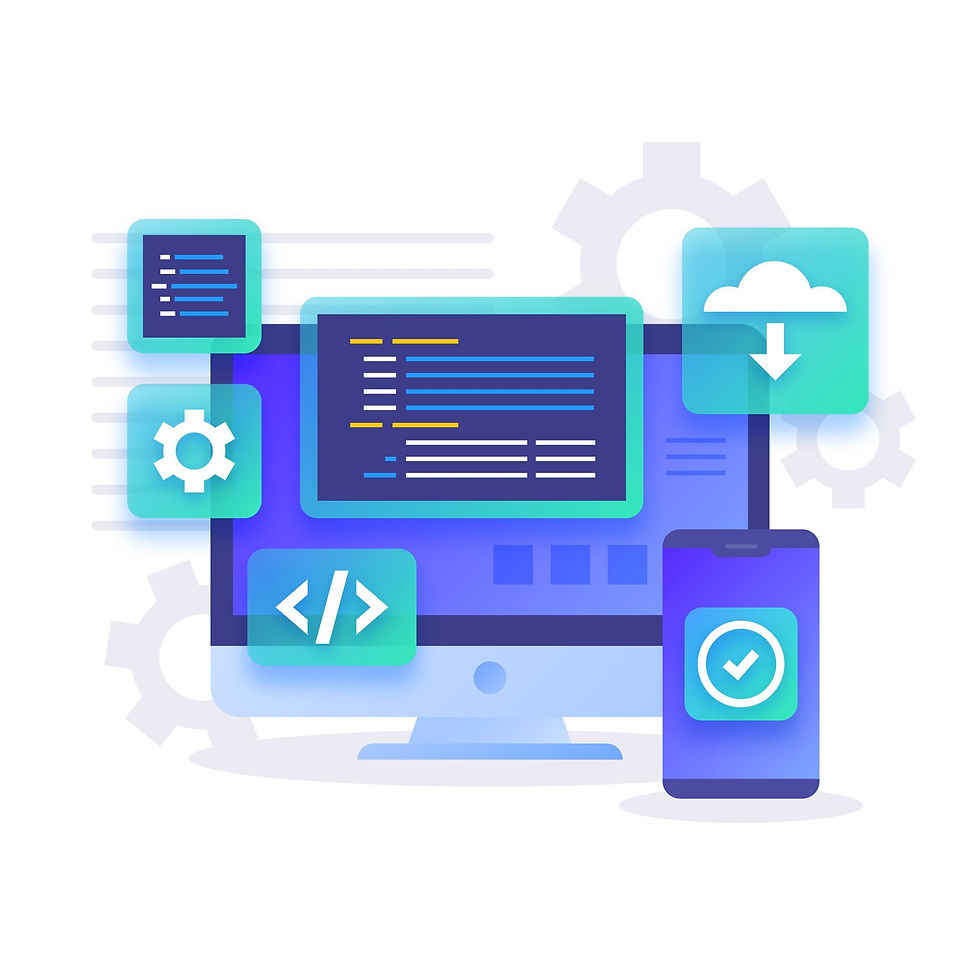Top 10 C Programming Concepts Every Beginner Must Know
- IOTA ACADEMY

- 2 days ago
- 3 min read
C programming is a generic programming language used in many applications. It forms the foundation of most of the high-level programming languages such as C++ and even web development. If you are a beginner in C programming, it is extremely crucial to learn the basic concepts. In this blog, we'll be talking about the top 10 C programming concepts which every beginner needs to know. Apart from that, these will be your gateway to even more advanced programming languages.

Variables and Data Types in C Programming
Variables and data types are important when beginning with C. Variables hold data, while data types identify the data being held. C accommodates various data types like int, float, char, and double. It is hence important to know how to declare and utilize such types in C programming.
Operators
Operators are operators that are employed to carry out operations on variables and values. Various types of operators such as arithmetic, relational, logical and bitwise operators are available in C programming. Operators assist you in carrying out computations and comparisons within your programs.
Control Structures
Control structures manage the flow of your program. In C, there are a number of control structures such as if, else, switch, and loops such as for, while, and do-while. They assist in managing how and when certain sections of code are called.
Functions
Functions in C allow you to divide your program into little, reusable pieces. A function is an independent block of code that does something. Second, knowing how to declare and invoke functions is essential in C programming.
Pointers
Pointers are probably the most potent aspect of C. A pointer holds the address of any other variable in memory. It comes in handy while dealing with and manipulating the memory in an efficient manner. Pointers will help you with programming higher-level and optimized programs.
Arrays
Arrays in C are used to store a collection of values of the same type. Values of an array can be accessed using an index. For example, to store 10 integers, an array would be a good choice to store them. Arrays are convenient while dealing with large data or while iterating over data in a loop.
Strings
Strings in C are character arrays. C does not support a built-in string type as some other programming languages do. However, you can use strings as character arrays and library functions. The approach is extremely crucial while you are dealing with text data in C.
Memory Management
Memory management is performed manually using functions such as malloc(), calloc(), free(), and realloc(). They enable you to dynamically allocate and deallocate memory at any time. Therefore, you have to learn memory management so that you can perform it without creating memory leaks and memory bugs in your program.
Structures
A construct in C allows you to combine several data types. It is useful when you need to store compound data. Structures are similar to C++ language course in Indore. They can be used to store variables of any type. Additionally, they arrange your program's data in a sequential manner.
File Handling
C file handling enables you to read from a file and write to it. Using functions such as fopen(), fread(), and fwrite(), you can perform operations on data in a file. File handling is useful when working with much data that will be stored and fetched.
How to Learn C Programming?
If you wish to study C programming intensively, you can pursue a Web Development course in Indore. C programming will be one of the topics that you will be studying in this course, which will be a good introduction. However, studying C will also come in handy while switching to other programming languages such as C++.
If specifically wanting to learn C++ in Indore, there are certain colleges offering c++ coaching in Indore. Moreover, studying the language C++ in Indore will provide you with an understanding of the advanced features of the language, object-oriented programming, which is a concept based on C.
Conclusion
These 10 rules are the basis of C programming. Once you have learned these rules, you can tackle complex topics and projects. C programming is flexible and is exposed to system resources, and hence it is a favorite with system programming, embedded systems, etc. Learning C will prepare you to learn other languages and be a good programmer.





Comments